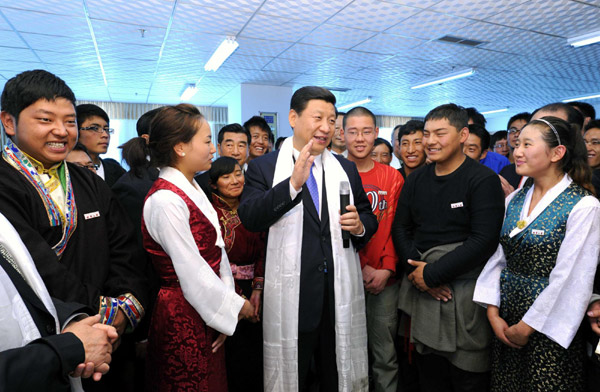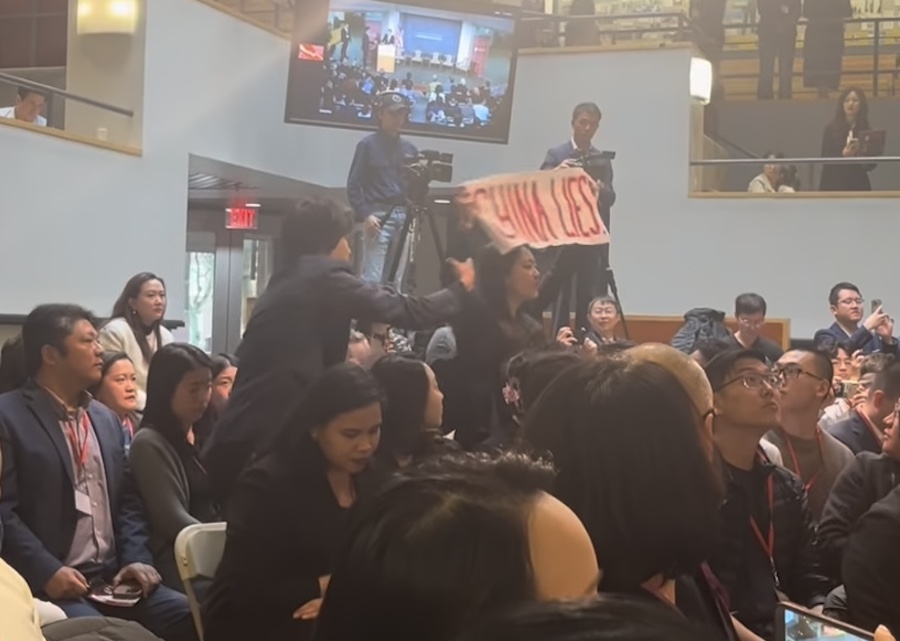By Choekyi Lhamo
DHARAMSHALA, June 15: Hiring practices in Tibet revealed state-sponsored discrimination against Tibetans as an official announcement on May 25 in Lithang barred individuals who have participated in “separatist activities” and those whose family members have “exited the country illegally”, reported rights group, International Campaign for Tibet (ICT). In one previous instance, the Chinese government issued the same criteria for recruiting police personnel by Kardze Prefecture government in 2017.
The announcement made in Lithang County by the office of Public Recruitment of Police for ‘disqualifying conditions’ included, “Participating in, supporting, or funding for ethnic separatist activities; participating in or supporting illegal activities such as hitting, smashing, looting, and arson; sheltering, hiding or conniving with all kinds of illegal persons; fabricating and spreading rumours and false information that undermine social stability; participating in and supporting illegal activities such as demonstrations, rallies, gathering, and protests that are related to ethnic splitting and sabotage activities.”
The announcement issued by 8 different departments in Lithang County includes the Lithang County Discipline Inspection Committee, Lithang County Organization Department, Lithang County Political and Legal Committee, Lithang County Human Resources and Social Security Bureau, Lithang County Finance Bureau, Lithang County Education and Sports Bureau, Lithang County Health Development Bureau, and the Lithang County Public Security Bureau.
In an announcement on May 2 for police recruitment in Dabpa County People’s Court in Kardze Prefecture, it said that “those who have received or are receiving subsidies from illegal overseas fund organizations” are disqualified in addition to the aforementioned clauses in the case of Lithang.
In Dec 2019, the announcement made in Lhoka had a reference to Tibetans that hindered employment if the individual “or family members have illegally entered or exited the country.” This announcement unlike others made in Lithang and Dabpa had a section on “political review” of recruits and a reference to “Interim Provisions on the Assessment and Political Review of the Recruitment of People’s Police by Public Security Organs” issued by the Chinese Ministry of Public Security. The neighbourhood or township police station or the county public security bureau fills the political opinions and stamps the official seal for review.
ICT reported similar cases of discrimination in hiring practices back in Oct 2019 in the Tibetan capital Lhasa where job postings required college graduates from TAR and for them to “reveal and criticize the Dalai Lama and have clear and firm political principles” for employment. In a recruitment announcement by the TAR government in 2018 for police personnel, it listed the candidate or their family members participating in “illegal organizations, cults, or engaging in other activities that endanger national security” as one of the disqualifying conditions.
The US International Religious Freedom released a report on June 10 which stated that Tibetans continue to encounter societal discrimination when seeking employment, engaging in business, and travelling for pilgrimage. Chinese president Xi Jinping has reportedly demanded political loyalty from the police force to deliver on two centenary goals of the CCP. “On political integrity, Xi demanded the police [to] closely follow the [Chinese Communist Party] Central Committee in terms of thinking, political orientation, and actions at all times,” reported a Chinese government mouthpiece.











One Response
Overt & subtle racial discrimination against Tibetans & other minorities is systemic & common in Chinese-occupied Tibet & other areas occupied by China. The CCP is essentially a racist regime in which minorities have few rights & little political/economic power. Language & cultural discrimination is rampant against Tibetans by the Chinese Govt. The UN & the world should recognize that the CCP is a racist regime.